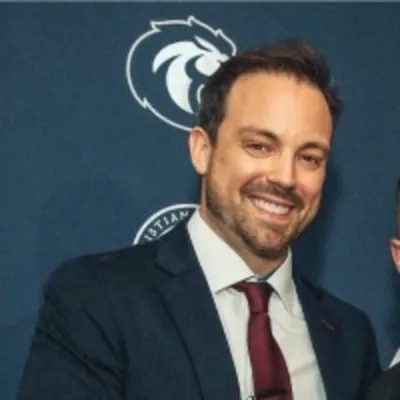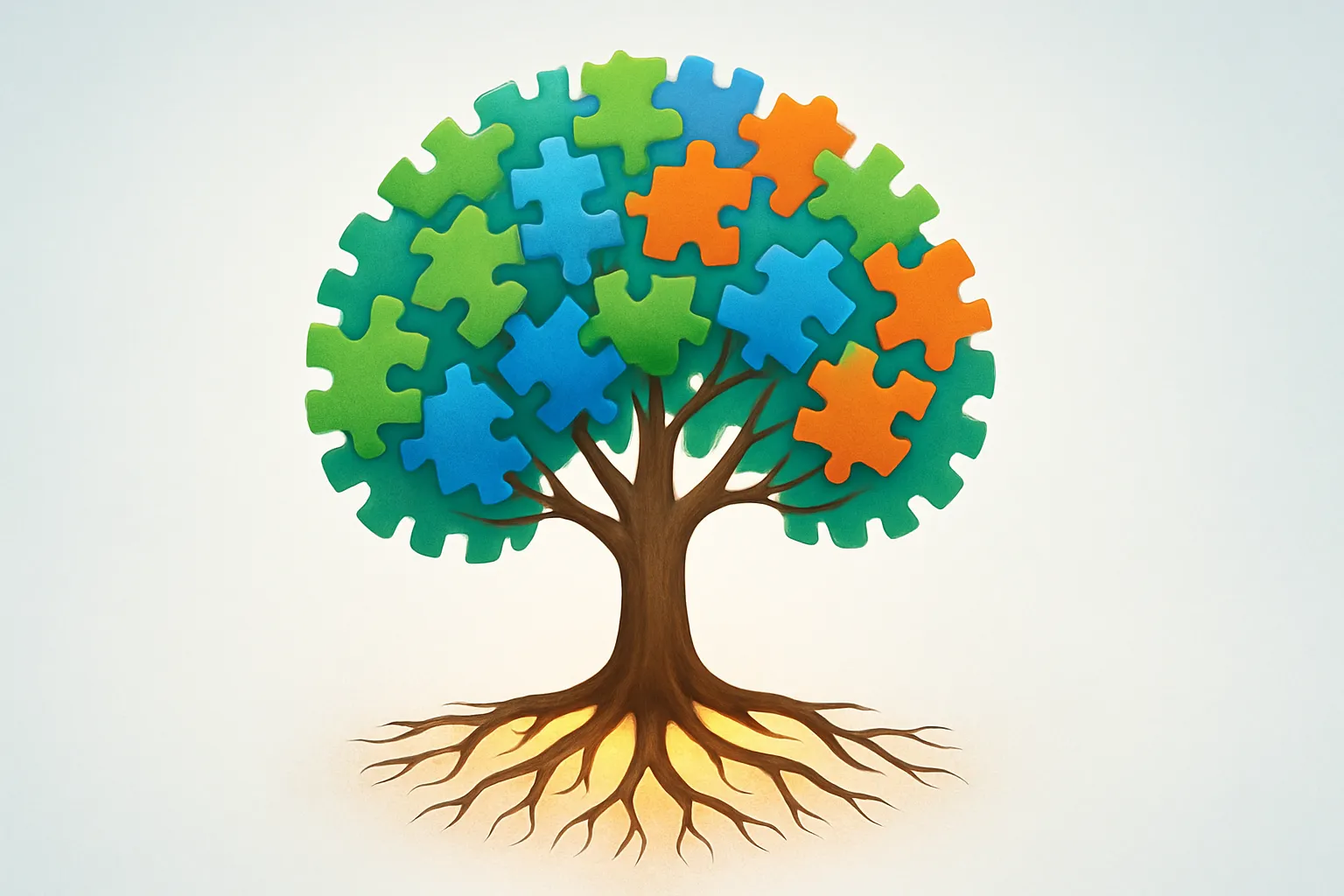Company culture is a powerful force that can make or break an organization’s success. We asked industry experts to share the role that employees play in shaping and maintaining the culture at their organization — and how they are empowered. Discover the key strategies that enable employees to co-create an authentic and impactful company culture.
- Employees Co-Create Culture Through Daily Actions
- Empower Staff to Shape Authentic Workplace Environment
- Crowdsource Cultural Markers for Organizational Identity
- AI Coaching Amplifies Employee-Driven Culture
- Lean Team Fosters Ownership and Continuous Learning
- Co-Create Culture Through Shared Values and Trust
- Values-Based Autonomy Empowers Genuine Client Service
- Trust and Innovation Drive Employee-Shaped Culture
- Systems Reflect Values in Practice, Not Theory
- Staff-Led Changes Improve Healthcare Culture Daily
- Rotate Leadership to Build Collaborative Culture
- Employees Shape Culture Through Key Moments
- Freedom and Trust Foster Employee-Driven Culture
- Hiring Right People Determines Long-Term Culture
- Empower Employees to Live Company Values Daily
- Invest in Growth to Build Supportive Culture
- Trust and Ownership Create Strong Company Culture
- Empowered Employees Build Stronger Companies
18 Insights on the Role of Employees
Employees Co-Create Culture Through Daily Actions
We believe that culture is not built top-down. It’s co-created every day by the people who live it. While leadership sets the vision and core values, it’s our employees who bring those values to life through their actions, decisions, and the way they collaborate. We empower our team by giving them ownership, not just tasks.
One of the ways we foster this is through structured peer coaching. Every team member participates in bi-weekly peer coaching sessions, where they help each other navigate challenges, share feedback, and hold each other accountable to stated goals. This isn’t a management-driven initiative; it’s peer-led and designed to reinforce our culture. It’s in these conversations that culture gets refined, shared, and strengthened.
Additionally, we involve employees in shaping company priorities through our “Accountability Labs.” These are quarterly sessions where teams propose ideas to improve processes, enhance client outcomes and experience, or evolve how we work together. Leadership’s role is to listen and support, not dictate. Our best innovations, like our client success playbook and our well-being programs, originated from these Labs.
Transparency is also a cornerstone. We share key metrics and business goals with the entire team, ensuring everyone understands how their work connects to the bigger picture. This clarity builds trust and encourages proactive ownership.
Ultimately, culture at is a shared responsibility. We’ve found that when employees are trusted with real decision-making power, given platforms to influence the business, and held accountable in a supportive environment, they don’t just adopt the culture, they shape it. That sense of ownership turns culture from a poster on the wall into a living, evolving force that drives performance and belonging.
 Rhett Power
Rhett Power
CEO and Co-Founder, Accountability Inc.
Empower Staff to Shape Authentic Workplace Environment
Culture doesn’t live in the HR manual; it lives in the choices employees make every day. People decide whether to help a colleague, speak up when they see something wrong, or celebrate wins. They are the ones who bring our values to life, so we involve them early and often. We work together to create norms, gather feedback in regular pulse surveys and open forums, and turn that feedback into action. We give people autonomy to make decisions in their sphere instead of asking for approval. We train managers to listen more than they speak, and we reward behaviors that build trust and collaboration. When employees know their voice matters and their ideas are acted on, they feel empowered to protect and improve the culture. It’s not about telling people what to do; it’s about creating the conditions where they can do their best work and hold each other accountable.
 Chris Dyer
Chris Dyer
Keynote Speaker On Culture, ChrisDyer.com
Crowdsource Cultural Markers for Organizational Identity
When evolving or transforming an organizational culture, I like to start by listening to employees about the current environment, what they love about it, and what they wish they could change or leave behind. Once I’ve gathered this feedback, I can begin to synthesize it across the groups I’ve talked with into a set of themes that can lead to cultural markers. I then crowdsource what behaviors bring these markers to life, then help to identify influencers in the organization who can be empowered to share success stories, integrate a new set of language, and embed these defined behaviors as early adopters, which is really where the culture comes to life.
By co-creating a culture with the employees, I help to ensure that organizations have an environment based on shared values, shared experiences, and a shared identity. Taking time to define what this is for your company in the form of themes, and then intentionally finding ways to activate those themes takes time and work, but in the end results in deeper connections, increased well-being and belonging, and boosted engagement — all of which drive improved business results.
 Angela Heyroth
Angela Heyroth
Principal, Talent Centric Designs
AI Coaching Amplifies Employee-Driven Culture
Employees don’t just shape the culture; they are the culture.
In a corporate world where culture is often defined top-down through values posters, “About Us” webpages, and HR slide decks, we’ve taken a different approach: we’ve embedded culture into the flow of everyday work — and put employees in the driver’s seat.
Our belief is simple: culture is dynamic, not declarative. It’s created in the micro-moments — a manager coaching in the heat of a team conflict, a peer giving candid feedback, or a new hire feeling confident enough to speak up in their first meeting. And those moments are shaped by how empowered your people feel.
That’s why we use AI coaching. It’s a tool to amplify human connection, not replace it. It gives every employee, from a new intern to a seasoned VP, access to personalized, just-in-time guidance tailored to their unique communication style, values, and team dynamics.
Whether it’s helping someone navigate a difficult conversation, prepare for a performance review, or understand how their Gen Z teammate prefers feedback, this kind of tech-enabled coaching acts as an always-on culture coach, guiding people in the moment where culture is either reinforced or eroded.
So in the end, we don’t just rely on top-down engagement surveys to tell us how culture is doing. Instead, our people have real agency. Every employee’s interaction with the tool contributes to a living pulse of the organization’s health — surfacing patterns, friction points, and opportunities for growth.
That real-time feedback loop empowers managers and HR teams to proactively strengthen culture — not retroactively fix it.
And perhaps most importantly, we’ve democratized leadership development. Traditional coaching has always been reserved for the few. We’ve flipped that script. Everyone gets access to leadership support, not just those with the right title or budget line.
 John Betancourt
John Betancourt
CEO, Humantelligence
Lean Team Fosters Ownership and Continuous Learning
We are a lean, senior-level team, and every person here shapes how we think, makes decisions, and leads clients based on experience. I am deliberate about who joins us, hiring only deeply vetted specialists who truly understand what we’re about. If we’re scaling up, I partner exclusively with proven business leaders, people who’ve won Cannes Lions or driven digital strategy for Fortune 500s.
When we told our intern Zach that we had only 25 percent of an idea for an AI agent to streamline our internal processes and identify previously unseen sales opportunities, we handed him the responsibility and gave him autonomy.
In a few weeks, he delivered a fully functional pipeline that has already saved us dozens of hours and surfaced qualified leads for our clients. He documented every step, iterated quickly, and kept us informed at key checkpoints, exhibiting exactly the kind of ownership we look for in our team members.
Culture stems directly from each employee’s personality, vision, and energy, so we relentlessly champion continuous learning. We constantly workshop ideas, drawing insights from psychology, culture, technology, and any other relevant fields. A team that feels they are continually learning, growing, and evolving will remain committed and continue to deliver. This is how the best ideas emerge, from all corners and from anyone, fostering a culture where growth is valued on both a personal and collective level.
 Andrew Stadelberger
Andrew Stadelberger
Founder, Player/Coach
Co-Create Culture Through Shared Values and Trust
When I build a team from the ground up, I ask each candidate to name one core value that keeps them anchored and one that fuels their daily motivation.
Once onboarded, those values live beyond a team manifesto; they become a breathing part of our value system. This reinforces a belief at the heart of my philosophy: that culture is not something we inherit. It is something we architect with intention and maintain with care.
I believe values should be directly connected to what energizes us to take action.
What sets these teams apart is how we lead from within. We do not impose culture from the top; instead, we make a concerted effort to co-create it.
We model that philosophy by demonstrating trust from day one. Within the first 60 days, we provide full visibility into our decision-making process. I have consistently invited interns and mentees into high-level strategy conversations and negotiations. This is not for them to take notes, but rather for them to give us notes on how to improve.
A strong team culture takes into account that every employee brings a wealth of knowledge and lived experience that we should learn from.
 Olivia Dufour
Olivia Dufour
Founder, Olivia Dufour Consulting
Values-Based Autonomy Empowers Genuine Client Service
Our employees are the living embodiment of our firm’s values, and honestly, they’re the ones who keep me accountable to our mission of being relentless allies grounded in compassion. You can’t fake that kind of culture — it has to be genuine, and it has to come from everyone, not just leadership.
Every person on our team, from our paralegals to our intake specialists, directly shapes how clients experience our firm during some of the most difficult moments of their lives. I’ve learned that empowering employees means giving them the authority to make decisions that truly serve our clients’ best interests, even when it’s not the most profitable path. For example, our case managers can authorize additional medical expert consultations or extend deadlines for clients who are struggling emotionally, without having to get approval from me first.
We empower our team through what I call “values-based autonomy.” Instead of rigid policies, we train everyone on our core principles and then trust them to make decisions that align with those values. Our support staff regularly contributes ideas during case strategy meetings because they often have insights from client interactions that lawyers miss. We’ve changed our approach to settlement negotiations multiple times based on feedback from our team about what they’re hearing from clients.
One of the most powerful ways our culture stays authentic is through our monthly “impact meetings” where employees share stories about how we’ve made a difference in clients’ lives. These aren’t just feel-good sessions — they’re reality checks that keep us focused on why we do this work. When our receptionist talks about comforting a crying client over the phone, or our paralegal shares how they helped a client navigate insurance bureaucracy, it reinforces that everyone here is part of the fight for justice.
The result is a culture where people genuinely care about outcomes, not just billable hours, because they feel ownership over our mission.
 Rick Hovde
Rick Hovde
Founding Partner, Hovde Dassow + Deets
Trust and Innovation Drive Employee-Shaped Culture
Frankly, if our team wasn’t engaged, passionate, and empowered, this company wouldn’t be where it is. Any “culture” we tried to push from the top would just be words on a whiteboard, not something real you could feel.
Our employees don’t just “work” here; they are the living, breathing essence of our company culture. Every conversation they have, every problem they solve for a client, every new idea they propose in a meeting — that’s our culture taking shape.
So, how do we ensure our team feels that ownership? It boils down to real empowerment, not just corporate jargon. Here’s how we do it:
- We Trust Them, Truly: We don’t micromanage. We hire smart, capable people, and then we give them the freedom to do their jobs. If someone identifies a better way to streamline a process or improve a feature, we don’t just nod our heads; we listen, we discuss, and we empower them to take the lead on implementing it.
- Their Voice Matters: We’ve built an environment where honest feedback isn’t just “allowed,” it’s actively sought out. We have regular check-ins, sometimes anonymous surveys, and an always-open door policy. We want to hear the good, the bad, and the brilliant ideas. Their insights directly influence how we evolve our company and our product.
- They Drive Innovation: This is crucial for us. We’re a tech company, always looking forward. We encourage everyone, from our developers to our client support team, to think like innovators. Have an idea for a new app feature? See a way to make the manager dashboard even better? Bring it forward. We brainstorm together, and many of our best advancements come from these collaborative sessions.
- Investing in Their Future: We don’t just want them to work here; we want them to grow here. That means providing opportunities for new skills, specialized training, and clear paths for career advancement. When they grow, our company grows. It’s that simple.
Our team isn’t just clocking in and out. They’re actively shaping the identity of our company every single day. This shared sense of purpose and genuine empowerment is what makes our culture so strong, so adaptable, and ultimately, so successful.
 Curtis Smith
Curtis Smith
CEO, mBurse
Systems Reflect Values in Practice, Not Theory
Employees are the heartbeat of our company. For us, culture is co-created through daily interactions, decisions, and how people present themselves.
Firstly, we value ownership. Everyone is treated like a stakeholder. You’re encouraged to challenge things, to ask why we’re doing something a certain way, and to propose better solutions. No permission is needed to care deeply about how we work.
Secondly, we emphasize autonomy with trust. I often say, if you want a high-performance culture, give people the space to perform. Micromanagement kills motivation. However, when someone knows they’re trusted to figure it out, they rise to the challenge. You get creativity, not just compliance.
Thirdly, we actively build systems that reflect our values, not just talk about them. Take psychological safety, for example. It’s easy to say we’re open, but if someone’s idea is dismissed within the first 30 seconds of a meeting, the message is clear. So we train leaders to listen, we celebrate curiosity, and we reward thoughtful disagreement. That’s culture in practice.
 Jamie Frew
Jamie Frew
CEO, Carepatron
Staff-Led Changes Improve Healthcare Culture Daily
Our culture is built by the people who see patients every day, not by a poster on the wall. Front desk staff, medical assistants, nurses, and providers set the tone through how they greet patients, how quickly they escalate concerns, and how consistently they follow evidence-based protocols. We empower that ownership in a few concrete ways:
1. Anyone can “stop the line” for a safety, ethics, or privacy issue and gets backed up for doing so.
2. Every role has small discretionary budgets for patient education, tools, or workflow fixes.
3. We run short improvement sprints where staff test an idea for two weeks, measure the outcome, and share results at huddle.
Metrics are transparent, showing rates, time to first follow-up after side-effect reports, and 3- and 6-month outcomes, so teams can see the impact of their decisions. Peer recognition is frequent and public, onboarding is buddy-led, and we hold open Q&A sessions each month so ideas and concerns move quickly.
Recent wins from staff-led changes include:
- Adjusting reminder timing to cut no-shows
- Creating a nurse-driven script for GLP-1 side-effect coaching that improved adherence
When people have authority, data, and visible support, they do not just maintain culture — they improve it.
 Brian Griffin
Brian Griffin
Dc, Msn, Fnp-C, Owner, Blue Tree Health Medical Weight Loss
Rotate Leadership to Build Collaborative Culture
The biggest influence on a company’s culture comes from how employees act and what they choose to support or question daily. Here, culture isn’t dictated; it’s something we build together. Early on, we started rotating who leads our weekly all-hands meetings. Whoever was in charge could set the tone, change the format, or even bring in guest speakers. This demonstrated that culture wasn’t just the founder’s vision, but something we all contribute to.
We fostered empowerment by being transparent and giving teams actual decision-making power. For instance, when we revisited our core values, employees led the workshops and identified what truly shapes our work, not just what we hoped for. The takeaway? Culture matters when it’s not just talked about, but when it’s put into action and shaped by those who live it every day.
 Felix Lucian
Felix Lucian
CEO, Felix Happich Consultancy
Employees Shape Culture Through Key Moments
Culture isn’t a poster on the wall; it’s the behaviors we reward (and refuse to tolerate) every single day. Our people co-create that, but it always starts with leadership. How leaders act shapes what the rest of the organization sees as “how we do things here.” People replicate what they see, so anyone in a leadership role needs to understand that their actions directly influence the culture.
Employees shape culture at three key moments:
1. Who we bring in. Our teams run peer interviews. If the “how” doesn’t match our values, we don’t move forward, even if the skills are great.
2. How we work. We’re remote-by-design, so teams build their own rituals that fit their context. The best practices often come bottom-up and spread because they work, not because I wrote a memo.
3. What we improve. Our people are always looking for ways to improve how we do things. Some of our most impactful tweaks started as an idea in a Slack thread.
We hire for ownership, give people real decision power, and make it easy to improve the system because culture is a product we ship together. That means clear decision rights and context: our teams own outcomes, not just tasks, and always know the “why” while deciding the “how.” In our fast-moving environment, we back quick decisions even with limited information, because inaction is worse than a wrong call.
We create safety to experiment through small bets and fast feedback, treating failures as lessons, not blame. Employees’ voices drive change through surveys, open feedback, and anonymous channels tied to visible action. And we insist on high performance with high collaboration, because while culture starts with leadership, it’s built by everyone through every hire, every project, and every improvement.
 Ezequiel Ruiz
Ezequiel Ruiz
Vice President of Talent Acquisition, BairesDev
Freedom and Trust Foster Employee-Driven Culture
If you ask me, I believe employees are the heart of our company culture. You can have all the rules and policies in place, but if the people don’t live it every day, it doesn’t mean much. For us, culture isn’t just a set of values on a wall. It’s how we work together, how we solve problems, and how we treat each other and our customers.
Everyone has the right to speak here. We listen to everyone’s ideas, regardless of their designation or job role. We encourage people to speak up, share feedback, and even challenge things if they think there’s a better way. This keeps the culture alive and real, instead of something that’s decided only by leaders.
We also give people ownership of their work. That doesn’t mean they’re on their own. We are always there to support them. But they have the freedom to make decisions and see them through. I think that trust builds confidence, and when people feel trusted, they naturally give their best.
Learning and growth are big parts of it too. If someone wants to learn a new skill or take on a new responsibility, we make space for that. It keeps people engaged and feeling valued.
In my understanding and experience, culture is also shaped by the little things. We celebrate wins, help each other out without being asked, and show up for each other on tough days. These small actions build a sense of belonging.
In short, when employees are given trust, respect, and the freedom to contribute, they take ownership of maintaining the work life and culture.
 Deepika Singh
Deepika Singh
Digital Strategy & Business Analysis Leader | Co-Founder, Digital4design
Hiring Right People Determines Long-Term Culture
Employees essentially hold the keys to the kingdom when it comes to company culture. As a business owner, hiring the right initial employees in the startup phase of the company can determine the company’s culture for years to come. My carpenters, for example, are easy-going, calm, personable, slow to anger, and enjoy their weekends off.
In turn, we have an understanding as a group that even when times get tough, or we’re overloaded with work, we’ll maintain that calm, tranquil attitude so we can lock in and get what we need done. This is all driven from the top, of course. Employees need to align with your own values and lifestyle. If you’re an 80-hour-a-week, no-weekends-off, tight-collar type of leader, and your employees aren’t, eventually they will leave or there will be conflict.
Maintaining and rewarding positive cultural behavior is important. Time off, words of affirmation, and of course, financial incentives are some absolutely necessary tools that should be used as positive affirmation.
There are instances where someone who doesn’t align with the company’s values and culture makes it onto the team. If your employees understand what the company’s vision is for culture, they can act on your behalf to weed out bad actors. Essentially, your employees become a filtration system for all things non-brand appropriate.
If your goal is to eventually have a self-sustaining business where you can afford to take your hands off the wheel, it’s critical to find team members who have the same values as you and to do whatever is necessary to keep them around.
 Samuel Khokhlan
Samuel Khokhlan
Founder, Bluechip Builders
Empower Employees to Live Company Values Daily
I’ve always believed culture isn’t built in the boardroom. It’s shaped in the day-to-day choices people make when no one’s watching. And in our case, employees aren’t just part of the culture; they are the culture. I know this might sound clichéd, but that’s what we’ve seen happen. Not once, but every day. We see it when a delivery team goes out of their way to help a struggling client meet a deadline, even though it wasn’t “in their scope.” We see it when our marketing team does work that’s traditionally what “sales” teams do. There are many examples: people staying late just to complete something on time, even when they aren’t the one who has to be responsible for it.
We don’t “ask” our employees for these things. We just give people enough trust and decision-making space so they feel ownership. And we don’t just stay on the receiving end of this supportive culture. As an organization, we make sure everyone is recognized for their contribution; we keep doors open for ideas.
Over time, we’ve noticed that it is not the posters or policies that build the culture. We, as leaders, set the example. The team follows. We appreciate and encourage it, and there you have it…a culture of working together, with grit and integrity is born. No rules and no playbooks needed.
 Dharmesh Acharya
Dharmesh Acharya
Co-Founder, ZeroThreat
Invest in Growth to Build Supportive Culture
At our company, employees aren’t just part of the culture; they help build it every single day. This is evident in the way people take ownership of their work, not because they have to, but because they genuinely care about the impact they’re making. You’ll often see teammates going out of their way to support each other, not for recognition, but because it feels natural to do so. That’s the kind of environment we’ve created, one where accountability feels shared, not forced.
What really sets us apart is how much the company invests in each person’s growth. Everyone gets access to hundreds of paid courses that cover a wide range of topics, so you’re never stuck waiting for someone to approve your development plan. You can just go for it when you’re ready. On top of that, we regularly host meaningful sessions that go beyond just skill-building. Some are focused on big-picture thinking, while others are simply about reconnecting with your own goals and passions.
There are also community meetups that spark new ideas and bring people together across teams. It’s these small but powerful moments that boost morale and help everyone grow, both personally and professionally. The values we share, especially the idea of owning your work, keep us aligned and moving forward. It’s not about slogans on the wall; it’s about how people actually show up and push toward something bigger, together.
 Umair Hussain
Umair Hussain
Digital Marketing Manager, Cloudways
Trust and Ownership Create Strong Company Culture
Employees play a crucial role in shaping and maintaining company culture; they are the culture. While a company might be founded by its owner, it is truly built by its employees. They are the pillars that hold everything up. When you prioritize your people over just the work, the work actually improves and the company naturally grows. There’s a saying I once heard, called the “1-2-3 rule”: Give 1 employee 2x the salary, and they’ll work 3x harder for you. It’s not just about money; it’s about making employees feel valued, trusted, and taken care of.
1. Culture is built from the ground up – Employees influence the way people interact, how challenges are approached, and what kind of workplace atmosphere exists. For example, if someone consistently supports their coworkers or celebrates team wins, that spirit of collaboration and positivity starts to spread. Culture grows when people live it out, not just talk about it.
2. Everyone’s voice matters – We encourage open communication and feedback, whether it’s through regular team check-ins, anonymous surveys, or casual conversations. When employees feel heard, they feel valued — and that trust creates a stronger, more honest culture.
3. Empowerment is key – People are trusted to make decisions, take ownership of projects, and even suggest improvements to how we work. When employees are empowered like this, they feel more invested in the company’s success — and that drives a culture of responsibility, creativity, and pride in the work.
4. Leading by example – Employees who live the company values day-to-day inspire others to do the same. Whether it’s showing integrity, being innovative, or simply being kind, those behaviors set the tone more than any policy or poster ever could.
Employees don’t just support company culture; they create it. And when you treat them like the essential foundation they are, they give their best back. Empowered employees build stronger companies.
 Ishwar Chauhan
Ishwar Chauhan
Digital Marketing Manager, Elsner Technologies
Empowered Employees Build Stronger Companies
Employees create culture within an organization most effectively when they have the power to decide on matters concerning the brand’s voice to the audience. I empower team members to drive entire media discussions, including pitching ideas and determining follow-ups. This level of trust helps them work without focusing on mundane tasks and develop a personal stake in the company’s representation. These individual choices ultimately create a culture where one can be both adventurous and responsible without direct supervision.
The most successful form of empowerment is one that measures success not only by the end product of media placement but also by the quality of relationships established to achieve that placement. I evaluate team members’ ability to build relationships, respond to reactions, and maintain consistency in tone. This approach facilitates the development of a culture based on how people behave rather than on policy books. When these habits become recurring, they form an implicit benchmark for the rest of the team, establishing a common work pattern that reinforces both internal relationships and external perception.
 Suvrangsou Das
Suvrangsou Das
Global PR Strategist & CEO, EasyPR LLC







